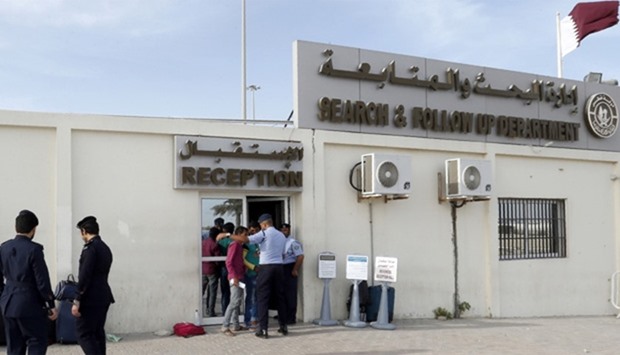As the deadline (December 1) approaches, first secretary and consul general Roussel R Reyes told Gulf Times that many Filipinos visit the chancery to seek help and request for travel documents needed by MoI to process their application.
“We encourage our compatriots to either approach the embassy or go directly to the Search and Follow up Department (SFD),” Reyes explained.
From about 60 in October, the embassy official expects more overstaying Filipino expatriates to rush and avail the amnesty in the last five days of the scheme.
Reyes noted that a big percentage of these cases fell under 'absconding,' mostly runaway household service workers (HSWs) while some were expatriates who failed to renew their residence permits for a number of reasons.
MoI’s straightforward procedure has helped a lot in clearing and resolving a number of challenges, he pointed out. “There are no concerns or problems about the procedure because it is well implemented,” he stressed.
Reyes reminded Filipino expatriates that the programme only covers those who have run away or absconded from their employers without other pending cases. It also excludes expatriates who have been charged in court.
In some cases, he said a number of applicants failed to qualify for the amnesty due to other complaints or charges they face.
He also advised them to make sure they have the required documents (passport or travel documents and a confirmed ticket) before going to the SFD to avoid being rejected.
“So far, those who came to the embassy had already booked their flights ahead while others (distressed expatriates at the Philippine Overseas Labour Office) received tickets from members of the Filipino community,” the official said, urging his compatriots not to wait for the deadline.
The embassy opened several direct and emergency hotlines to receive calls from those who seek various assistance related to labour, consular services, and other concerns.
Reyes said overstaying Filipino expatriates who have passport issues can visit the embassy for assistance.
A first in 12 years and the third ever in Qatar, the grace period came into force on September 1 and ends on December 1.
Foreigners who are residing in the country in violation of the provisions of Law No 4 of 2009 Regulating the Entry, Exit, Residence and Sponsorship of Expatriates can exit the country without legal consequences during the amnesty, the MoI had said through a post on its Facebook page.


